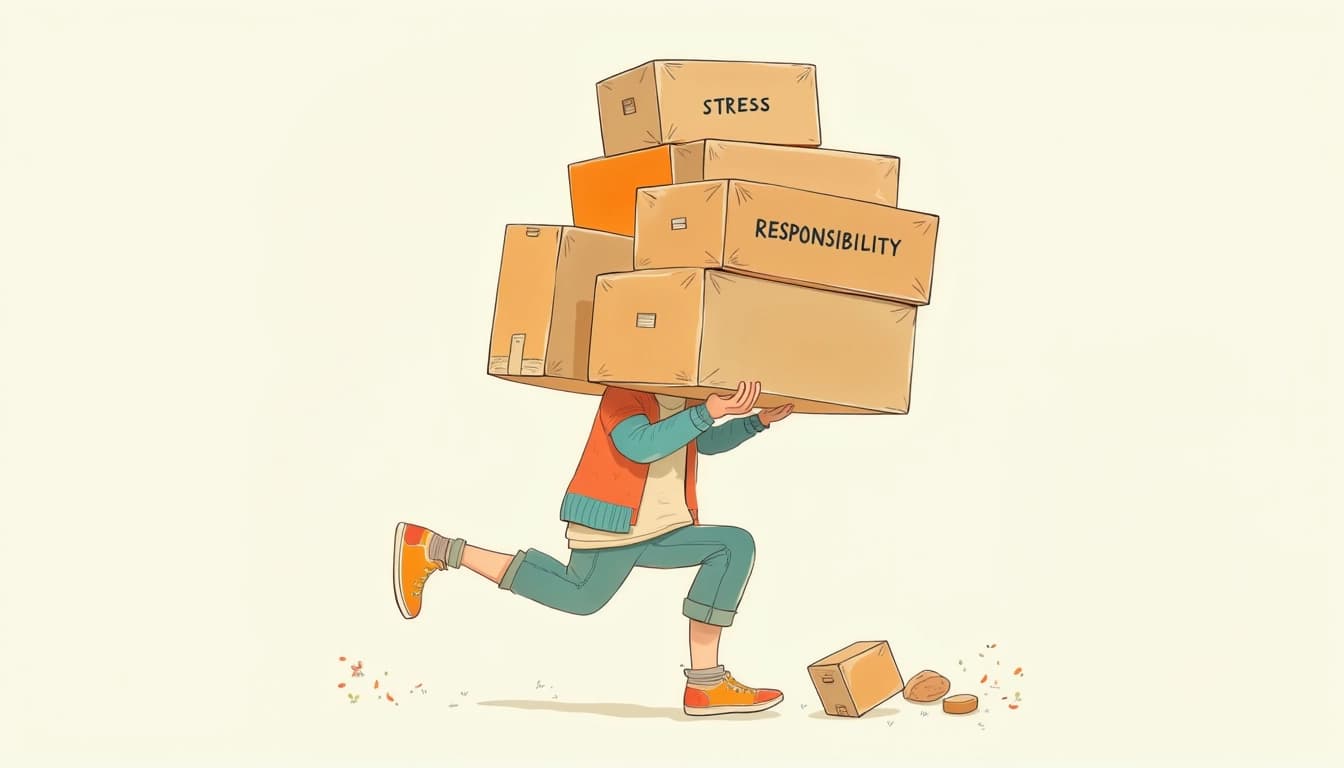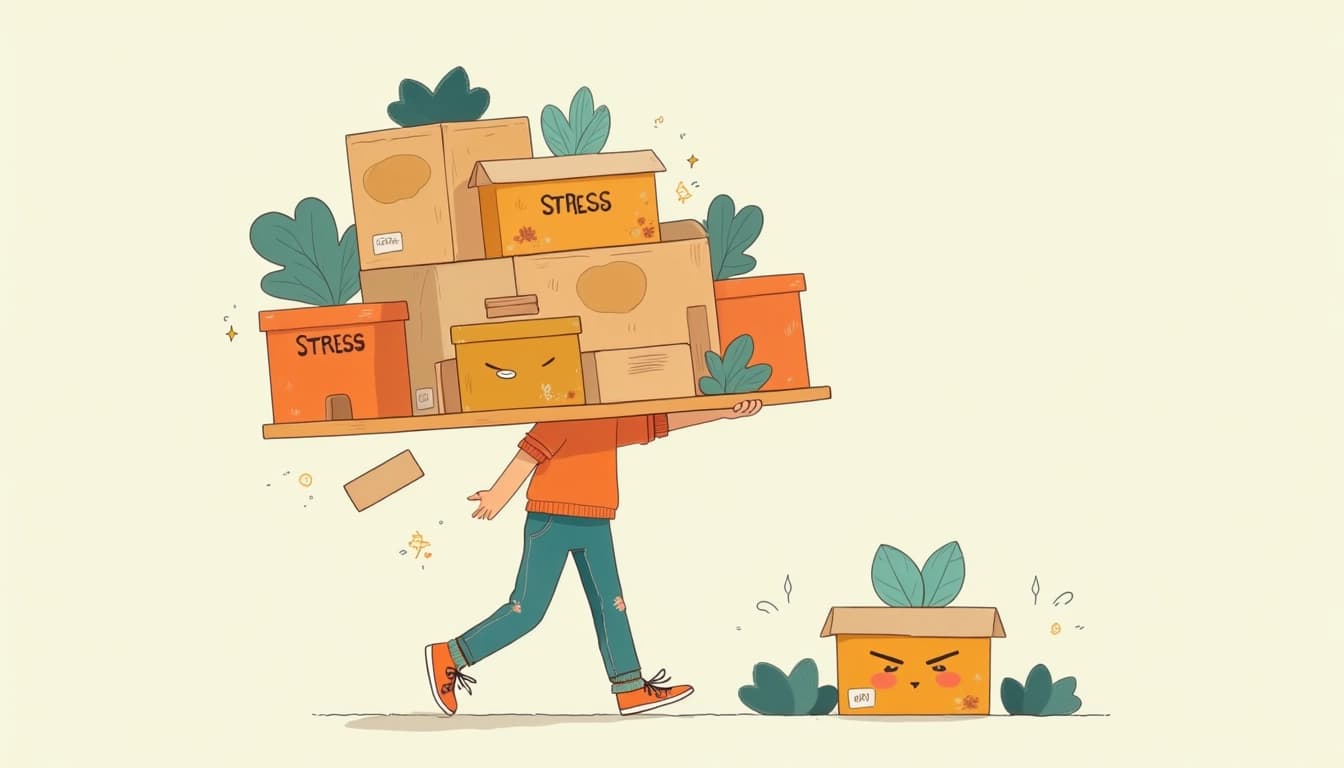Understanding and Overcoming Burnout: A Comprehensive Guide
In today’s fast-paced, always-connected world, it's no surprise that burnout has become a pervasive issue affecting millions of people across various professions and demographics. The constant pressure to perform, the blurring of work-life boundaries, and the relentless pursuit of success have created a breeding ground for this modern-day epidemic.
This comprehensive guide is part of a three-part series on burnout. After reading this overview, you may want to explore part two on Overcoming Burnout Through Self-Forgiveness and part three on Prioritizing Rest and Self-Care to deepen your understanding of recovery strategies.
What Is Burnout?
Burnout is a state of emotional, physical, and mental exhaustion caused by prolonged or excessive stress. It's characterized by feelings of overwhelming exhaustion, cynicism, detachment, and a reduced sense of personal accomplishment. Burnout is not merely fatigue or stress; it's a more chronic and pervasive condition that can have significant consequences for both individuals and organizations.
It's important to distinguish between burnout, stress, and fatigue:
-
Stress: A feeling of emotional or mental tension caused by challenging or demanding circumstances. Stress can be acute (short-term) or chronic (long-term), and while it can be motivating in small doses, excessive stress can be harmful.
-
Fatigue: A state of physical or mental weariness resulting from exertion or lack of sleep. Fatigue can often be remedied with rest and relaxation.
-
Burnout: A state of chronic stress that leads to emotional, physical, and mental exhaustion. Burnout often results from prolonged exposure to stressors such as an overwhelming workload, lack of control, or a toxic environment.
The term "burnout" was first coined in the 1970s by psychologist Herbert Freudenberger to describe the emotional exhaustion experienced by helping professionals. Over time, the concept has expanded to encompass various professions and life situations, recognizing that burnout can affect anyone who experiences chronic stress.

The Stages of Burnout
Burnout typically develops in stages, making it essential to recognize early warning signs and intervene before it becomes severe. Understanding these stages can help you identify your own experiences and take proactive steps to address them.
1. The Honeymoon Phase
This initial stage is marked by enthusiasm, high energy, and a sense of optimism. You might feel excited about a new job, relationship, or project and be willing to put in extra effort to succeed. However, this initial euphoria can mask underlying stress and fatigue, setting the stage for burnout if not managed effectively.
2. Onset of Stress
As the initial excitement fades, stress starts to take a toll. You may experience fatigue, decreased productivity, changes in sleep patterns, and alterations in appetite. Feelings of overwhelm might surface as you struggle to meet demands. Personal needs may be neglected, and withdrawal from social activities can begin.
3. Chronic Stress
Prolonged exposure to stressors leads to more severe physical and emotional symptoms. You might experience irritability, anxiety, depression, and feelings of hopelessness. Denial may occur, convincing yourself that you are not burned out despite mounting evidence.
4. Burnout
This final stage is characterized by complete emotional, physical, and mental exhaustion. You might feel cynical, detached, and experience a reduced sense of personal accomplishment. Work performance suffers, relationships are strained, and a range of physical and mental health problems may emerge.
Types of Burnout
Burnout can manifest in different ways. Research suggests there are three primary types of burnout:
1. Overload Burnout
Caused by excessive workload and pressure. Individuals feel overwhelmed by the demands of their job or personal life, leading to exhaustion and a sense of being unable to cope.
2. Under-Challenge Burnout
Arises from boredom, lack of stimulation, and a sense of being stuck. You may feel like you're not using your skills and talents to their full potential, leading to dissatisfaction and disengagement.
3. Neglect Burnout
Stems from feelings of helplessness at work. Individuals may feel inadequate or unable to keep up with demands, leading to frustration and decreased motivation.
Understanding the different types of burnout can help identify the root cause of your experience and tailor strategies to address your specific needs.
Causes of Burnout
Burnout is a complex issue with various contributing factors, including workplace contributors, individual predispositions, and societal pressures.
Workplace Contributors
-
Excessive Workload and Pressure: An overwhelming workload, unrealistic deadlines, and constant pressure to perform are major contributors to burnout.
-
Lack of Control and Autonomy: When you have little control over your work, decision-making, or schedules, you're more likely to experience burnout.
-
Toxic Work Environment: A negative work environment characterized by unsupportive colleagues, poor leadership, lack of recognition, and unfair treatment can significantly contribute to burnout.
Individual Predispositions
-
Perfectionism and High Expectations: Setting unrealistically high standards for yourself can lead to chronic stress and burnout.
-
Negative Mindset: Difficulty coping with stress and negative thinking patterns can make you more susceptible to burnout.
Societal Pressures
-
"Always-On" Culture: Constant connectivity, the blurring of work-life boundaries, and the expectation to be available 24/7 can lead to burnout.
-
Economic Pressures and Job Insecurity: Financial strain, worries about job security, and the rising cost of living can increase stress levels.
-
Social Media and Comparison: Social media can create unrealistic expectations, fuel comparison, and contribute to feelings of inadequacy and stress.
Recognizing the Signs and Symptoms of Burnout
Burnout can manifest in various ways, encompassing physical, emotional, behavioral, and cognitive symptoms. Recognizing these signs early on is crucial for prevention and intervention.

Physical Symptoms
-
Fatigue and Exhaustion: Persistent tiredness that doesn't improve with rest.
-
Sleep Disturbances: Insomnia or excessive sleeping.
-
Changes in Appetite: Weight loss or gain due to changes in eating habits.
-
Physical Discomfort: Headaches, muscle tension, or gastrointestinal issues.
-
Weakened Immune System: Increased susceptibility to illnesses.
Emotional Symptoms
-
Cynicism and Detachment: Feeling negative or detached from work or personal life.
-
Irritability: Increased frustration and mood swings.
-
Anxiety and Depression: Feelings of worry, sadness, or hopelessness.
-
Reduced Self-Esteem: Feeling inadequate or unaccomplished.
-
Emotional Numbness: Difficulty experiencing joy or satisfaction.
Behavioral Symptoms
-
Procrastination: Delaying tasks and responsibilities.
-
Withdrawal from Social Interactions: Avoiding friends, family, or colleagues.
-
Increased Substance Use: Using alcohol, drugs, or food to cope.
-
Changes in Work Habits: Decreased productivity, increased errors, or absenteeism.
-
Difficulty Concentrating: Trouble focusing on tasks or making decisions.
Cognitive Symptoms
-
Reduced Concentration and Focus: Difficulty staying attentive.
-
Impaired Decision-Making: Struggling to make choices or judgments.
-
Forgetfulness: Memory lapses or missing appointments.
-
Negative Thinking Patterns: Pervasive pessimism or self-doubt.
Self-Assessment Tools
To help assess your risk factors and identify potential signs of burnout, consider the following questions:
-
Do you feel unusually excited to start new work tasks but quickly lose motivation?
-
Do the demands of your job consistently interfere with your personal life?
-
Do you frequently experience tiredness, fatigue, or boredom and ignore these feelings?
-
Do you constantly overstretch yourself to meet project requirements at all costs?
-
Does your work feel like a "honeymoon" phase that quickly leads to disillusionment?
If you answered "yes" to several of these questions, you might be in the early stages of burnout.
For a more comprehensive assessment, you can take the Comprehensive Burnout Test.
The Consequences of Burnout
The impact of burnout extends beyond individual wellbeing, affecting organizations, families, and society as a whole.
Impact on Individuals
-
Physical Health: Chronic stress can lead to heart disease, high blood pressure, and other health issues.
-
Mental Health: Burnout is linked to anxiety, depression, and substance abuse.
-
Relationships: Increased irritability and withdrawal can strain relationships with loved ones.
-
Work Performance: Decreased productivity, increased errors, and difficulty concentrating hinder career advancement and job satisfaction.
Impact on Organizations
-
Decreased Productivity and Increased Costs: Burnout leads to lower productivity levels, increased absenteeism, and higher healthcare costs.
-
High Turnover Rates: Employee dissatisfaction can lead to high turnover, costing organizations time and resources.
-
Negative Work Environment: Burnout creates a demoralizing atmosphere, impacting team morale and collaboration.
Preventing and Overcoming Burnout
Addressing burnout requires a proactive approach involving both individual and organizational strategies.
Individual Strategies
-
Stress Management: Engage in activities like mindfulness, meditation, deep breathing exercises, yoga, or spending time in nature.
-
Setting Boundaries: Establish clear boundaries between work and personal life. Learn to say "no" to avoid overcommitment and prioritize tasks.
-
Cultivating a Positive Mindset: Practice gratitude journaling, self-compassion, and challenge negative thought patterns.
-
Work-Life Balance: Make time for hobbies, leisure activities, social connections, and relaxation outside of work.
-
Healthy Lifestyle: Maintain regular exercise, eat a balanced diet, get enough sleep, and limit caffeine and alcohol consumption.
Organizational Strategies
-
Creating a Supportive Work Environment: Foster a positive culture that values employee wellbeing. Provide opportunities for growth, development, recognition, and rewards.
-
Promoting Work-Life Balance: Offer flexible work arrangements, paid time off, and resources to support employee wellness.
-
Addressing Workload and Pressure: Implement strategies to reduce workload, set realistic expectations, and provide employees with more control and autonomy.
Seeking Professional Help
If you're struggling with burnout or suspect you may be experiencing a mental health condition, it's essential to seek professional help from a therapist, counselor, or other mental health professional.
Conclusion
Burnout is a serious issue with far-reaching consequences. Recognizing the signs and taking proactive steps to prevent and address it is crucial for maintaining wellbeing and achieving a fulfilling life. Remember, you are not alone in this struggle.
By prioritizing your wellbeing and seeking support when needed, you can overcome burnout and reclaim your energy, motivation, and sense of purpose.
This article is part of our comprehensive series on burnout. Continue your journey with:
Additional Insights and Resources
-
World Health Organization: https://www.who.int/
-
Mental Health America: https://www.mhanational.org/
-
American Institute of Stress: https://www.stress.org/
Are you interested in learning programs and a personal AI companion to talk to? Try out MindLumen AI to improve your mental wellbeing with AI therapy and companionship. You can try it out for free.
Get started with MindLumen


